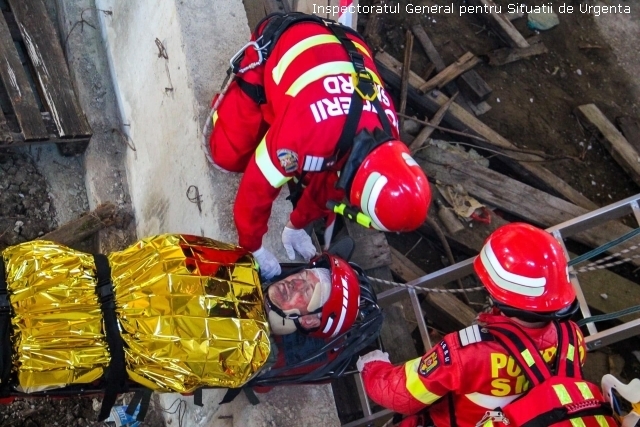Treating major burn victims – a problem in Romania
Romania plans to create a mechanism for immediate intervention in the event of accidents involving severe burns.

Roxana Vasile, 09.11.2018, 13:31
The health minister Sorina Pintea recently admitted that Romania would not be able to cope with anothe big fire like that of 30th October 2015 at the Colectiv nightclub, when 64 people died. There are only 11 beds for major burn victims in all of Romania and the authorities would have to request help from abroad in case of another accident of that magnitude, the minister said. Indeed, last week, a 28-year-old young man from Piatra Neamt, Alexandru, suffered severe burns in an explosion at his home. None of the 11 beds was available, so he was transferred to Belgium. Having suffered third-degree burns on almost 75% of his body surface area and having contacted two bacteria in Romanian hospitals, the young man died.
Without regarding his death as a failure of the Romanian healthcare system, minister Sorina Pintea said: “Alexandru was not on the waiting list. He was moved to Belgium as soon as the doctors agreed. I’ve said it before, we were in permanent contact with a doctor from Belgium, sending him Alexandru’s medical records, and the moment he said yes we put Alexandru on a plane. His condition was very serious. I’m sure they did everything they could.”
The health minister has also said that an application is about to be launched to provide real-time data about the number of available intensive care beds in emergency hospitals in Bucharest and the country’s university centres. At the request of the Colectiv association, which was created after the tragedy at the Bucharest nightclub three years ago, minister Pintea agreed to create a mechanism within the ministry to complement the existing European mechanism for the immediate intervention in case of accidents involving severe burns.
Mihai Grecea, a member of this association, called for the improvement of the legislation and the elimination of red tape: “There are guidelines for burn injuries which are known in every hospital in the country at the moment, but these guidelines somehow inhibit action, especially in the hospitals in the countryside. When they have patients with burn injuries, they want to get rid of them as soon as possible, send them to Bucharest, where there isn’t in fact any burns centre. Romania doesn’t have an actual burns centre able to treat major burn injuries, so in order to save these people’s lives we have to send them abroad. The mechanism short-circuits all bureaucratic convolutions in order to take the patients out of the country as soon as possible and send them to a proper burns centre.”
The representatives of the Colectiv Association have decided to establish the Association of Burn Patients in Romania.






























